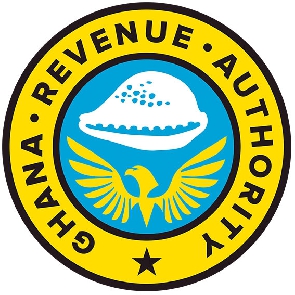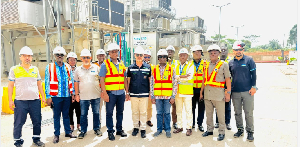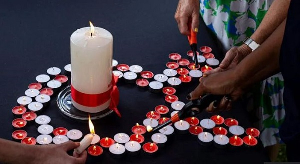Even though public officials can and will continue to dismiss any conversation about corruption in their institutions as mere allegation or perception, the voiceless majority know that corruption is real among state institutions and can even pin-point major perpetrators.
They can even give accounts of personal experiences of corrupt practices.
In this vein, it comes to us as a confirmation of corruption in public institutions the story that the Ghana Revenue Authority (GRA) has partnered with five organisations to tackle corruption in Customs operations for enhanced revenue mobilisation and trade facilitation.
The organisations are the Commission on Human Rights and Administrative Justice (CHRAJ), Ghana Integrity Initiative (GII), Office of the Head of Civil Service, Committee of Freight Forwarders’ Association (CoFFA) and the World Customs Organisation (WCO).
The partnership is dubbed ‘Fighting Corruption and Promoting Integrity through Collective Action’.
The fight is said to form part of the Anti-Corruption and Integrity Promotion (A-CIP) Programme rolled out by the WCO in 2019 to restrict corrupt behaviour and promote good governance in Customs operations and administration in Ghana and seven other countries.
And that the A-CIP Programme is aimed at realising the objectives of the WCO Revised Arusha Declaration that provides Customs administrations with a practical approach to formulating anti-corruption policies and practices as stipulated in the United Nations Convention Against Corruption (UNCAC) Article 5 in order to reduce and eventually eliminate opportunities for corruption.
The Article 5 of UNCAC, titled ‘Preventive anti-corruption policies and practices’, has noble objectives which we have reproduced here to help our argument in this piece.
They are:
Each State Party shall, in accordance with the fundamental principles of its legal system, develop and implement or maintain effective, coordinated anticorruption policies that promote the participation of society and reflect the principles of the rule of law, proper management of public affairs and public property, integrity, transparency and accountability.
Each State Party shall endeavour to establish and promote effective practices aimed at the prevention of corruption.
Each State Party shall endeavour to periodically evaluate relevant legal instruments and administrative measures with a view to determining their adequacy to prevent and fight corruption.
State Parties shall, as appropriate and in accordance with the fundamental principles of their legal system, collaborate with each other and with relevant international and regional organisations in promoting and developing the measures referred to in this article.
The partnership has a formidable basis due to its international support or appeal in addition to its recourse to the legal system of individual party states.
We all know that customs operations form one huge source of revenue for Ghana and people like importers who encounter such operations are always heard in public lamenting corrupt practices at the country’s entry points, particularly the ports.
The lifestyle of Customs workers also speaks volumes to confirm their involvement in dishonest and corrupt dealings at their workplace.
We will not be surprised if some of such public revenue collectors rubbish our editorial.
However, we can say that all people and even such daring Customs workers themselves would conclude that they are doing so to take attention from their pricking conscience.
Customs workers are denying the country the needed revenue, so we support every move that would check these corrupt workers, including prosecution.
Editorial News of Friday, 9 June 2023
Source: ghanaiantimes.com.gh













